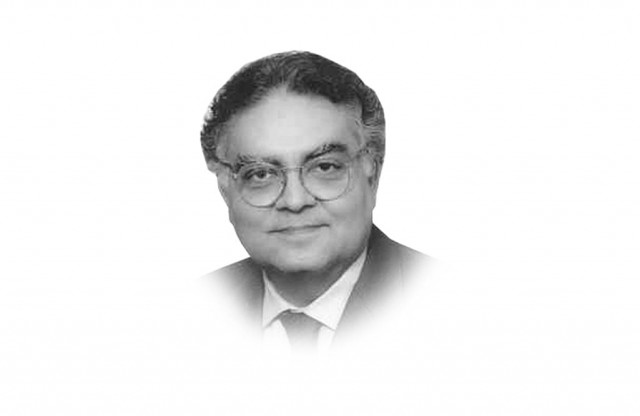Dialectics of democracy
In Pakistan, contradictions are at play within, between the ideological, political, institutional, economic spheres.

At a general level, dialectics refers to the tension between opposing forces: a tension that in society can propel political change. Such dialectics within society, economy, polity and the understanding thereof, create the possibility for individuals, classes and nations to shape their future through conscious social action.
In Pakistan today, a range of contradictions are at play within and between the ideological, the political, the institutional and the economic spheres. For instance, at the ideological level, there is contention between the religious and the secular democratic discourses. Within the religious, there is tension between the various sects who aim to impose conflicting notions of ‘Sharia’ on society on the one hand and, on the other, the Sufi tradition of love and human solidarity as the pre-eminent norm: a perspective that has historically permeated folk culture in each of the provinces of what is Pakistan today.
The ideological space is also being contended by the democratic discourse, which propounds the idea of legislation through representative government, of institutionalised guarantees of freedom and protection of internationally recognised human rights.
At the institutional level, there is the struggle by the militant extremist organisations to establish, through terror, a despotic state (Emirate) with rules that would coerce individuals to behave according to their notion of ‘religious’ propriety. There is also within the nascent democratic structure the struggle to subordinate in practice, the military to elected civil authority; at the same time, there is contention between the different organs of the state such as the judiciary, the executive and the legislature to protect their respective domains of authority.
At the economic level, there is a contradiction between the interests of the elite and those classes, which have been systematically excluded from the process of economic growth as well as equitable access to public services such as education, health and justice.
Given this edifice of contradictions in Pakistan, it is important to identify the principal contradictions. This is necessary for articulating a course of action to re-establish order, build a more humane society and save the state.
Four inter-related contradictions are primary: 1) the contradiction between the militant extremists and the state of Pakistan; 2) despotism versus democracy; 3) an ideology based on bigotry, hate and violence versus an Islamic religious tradition based on love, knowledge and tolerance; 4) an economy for the elite versus an economy for the people that draws upon their investment, innovation and enterprise.
A creative resolution of these contradictions towards a better future will require organised struggle, an enlightened application of power and institution-building.
In undertaking this great endeavour, it is necessary to understand that religion is not brutality, bigotry and coercion. Religion is the re-establishment of the ligament with God: the ligament of love, knowledge and freedom.
Published in The Express Tribune, August 27th, 2012.















COMMENTS
Comments are moderated and generally will be posted if they are on-topic and not abusive.
For more information, please see our Comments FAQ